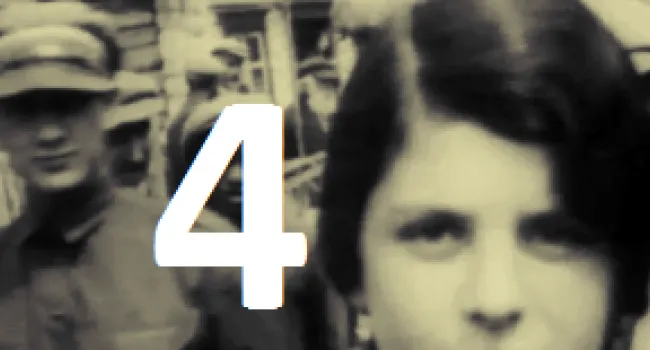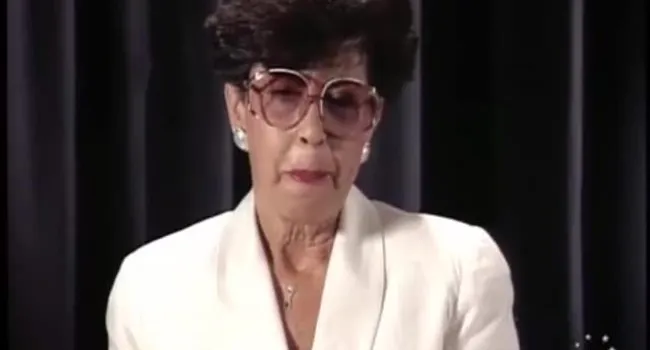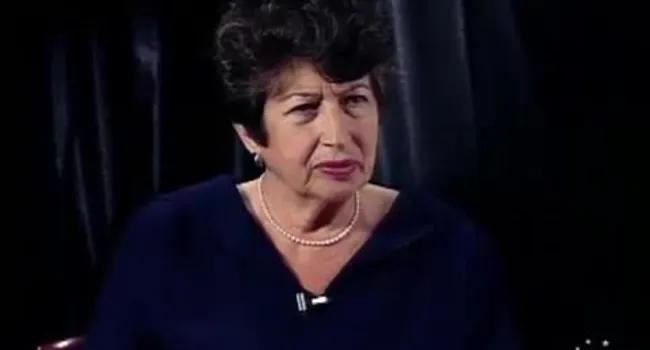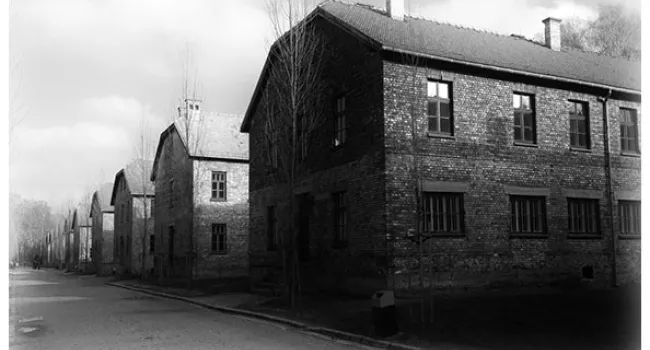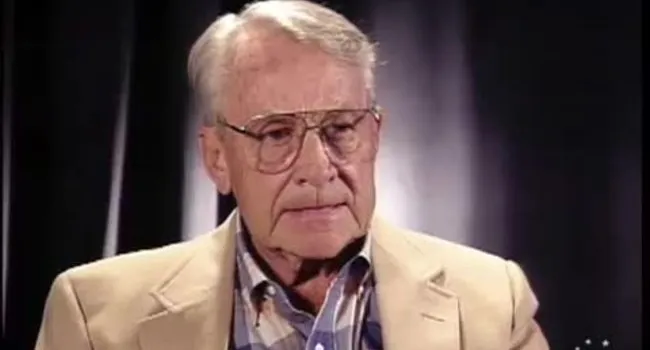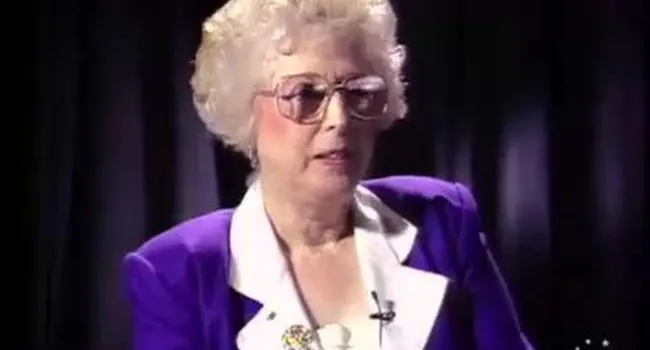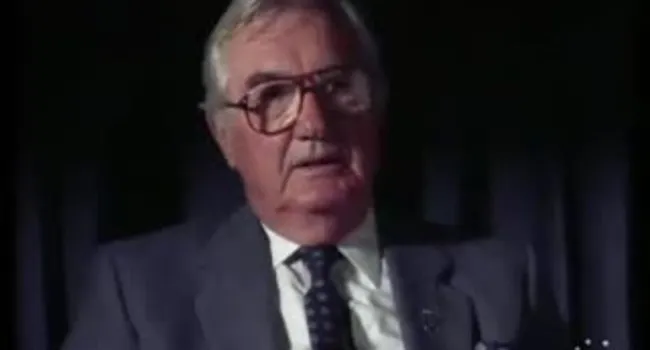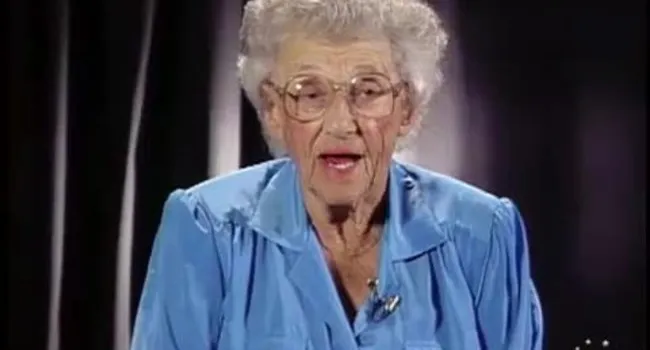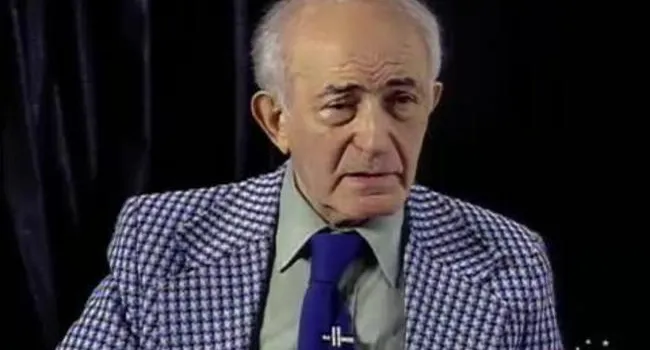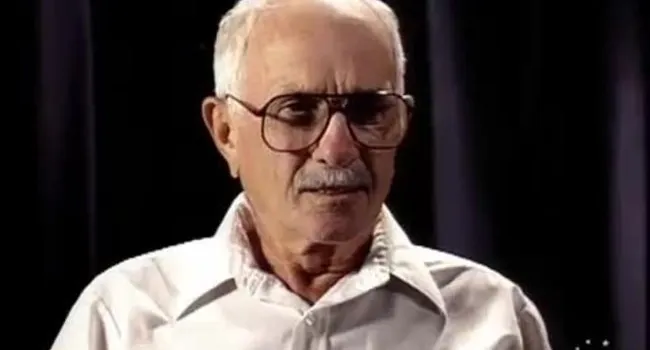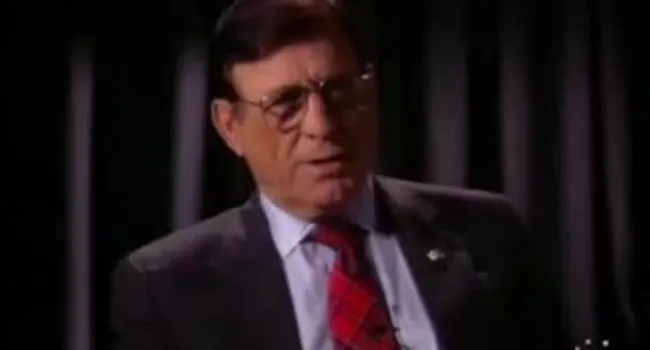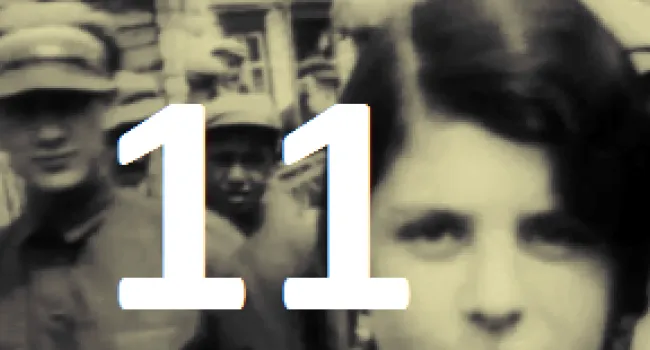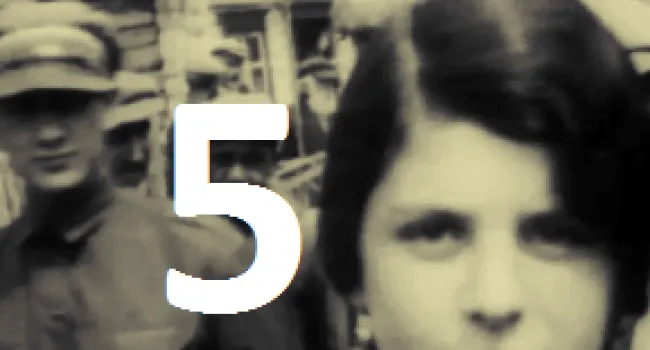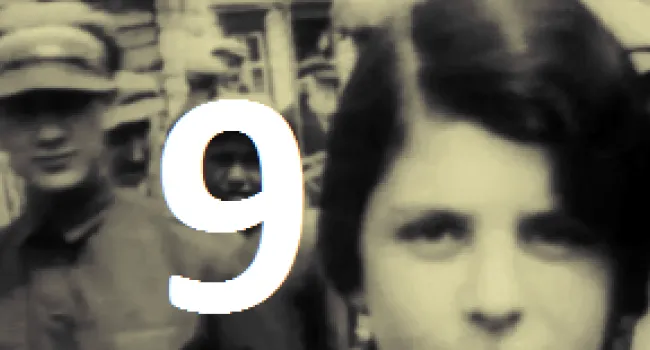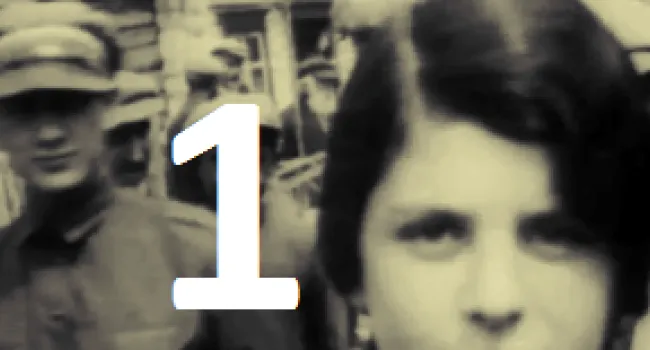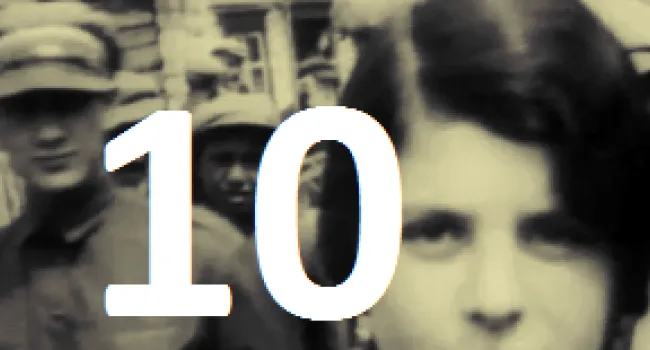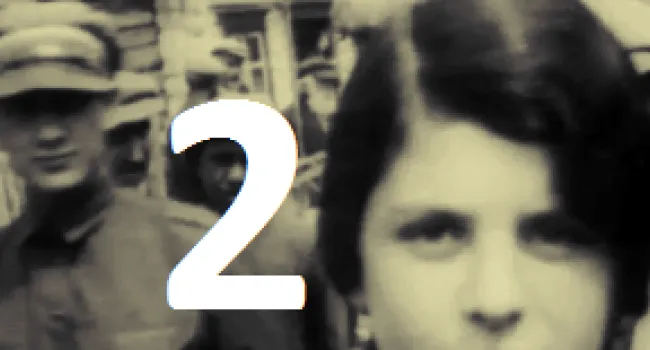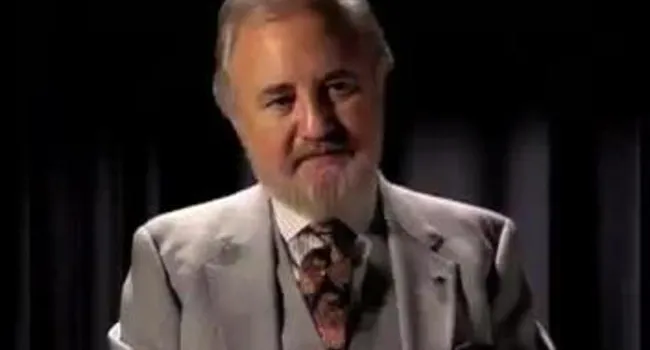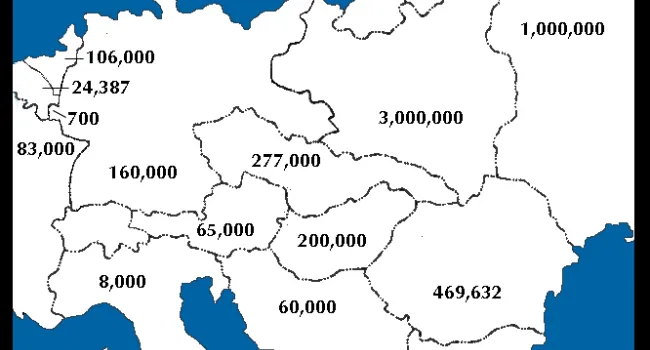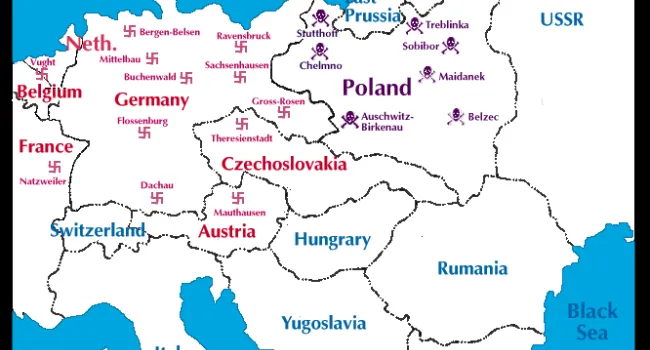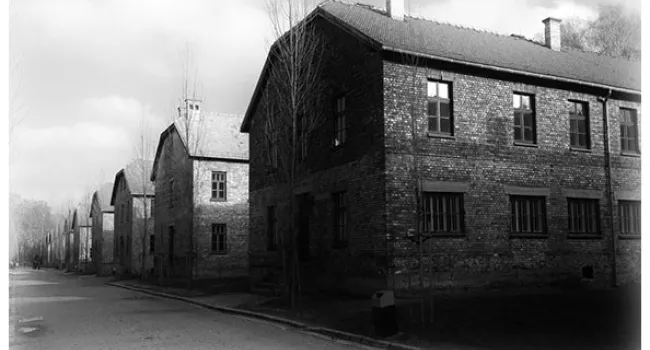Paula Popowski was born in Poland in 1923 in a predominantly Jewish city. "I came from a very orthodox family. I didn't socialize with Gentiles. Jews and Gentiles didn't mix in public school." In the late 1930s, bad things started happening to German Jews. Germans came through burning everything in Poland; took Jewish prisoners and kept them in the synagogue. In 1940, they abolished Jewish businesses. There was an outbreak of typhus, and it was difficult to get medical care. There was very little food; they had to share everything. There were rumors of killings and the Germans started taking hostages in the early 1940s. She heard rumors about Auschwitz and people being burned to death. Her message to people—"Whatever religion, or nationality people are, judge them by their deeds; don't generalize."
Standards
- 5.3 Demonstrate an understanding of the economic, political, and social effects of World War II, the Holocaust, and their aftermath (i.e., 1930–1950) on the United States and South Carolina.
- 6.5.CE Explain the impact of nationalism on global conflicts and genocides in the 20th and 21st centuries.
- 7-4 The student will demonstrate an understanding of the causes and effects of world conflicts in the first half of the twentieth century.
- The influence of both world wars and the worldwide Great Depression are still evident. To understand the effects these events had on the modern world, the student will utilize the knowledge and skills set forth in the following indicators:
- 7-4.5 Summarize the causes and course of World War II, including drives for empire, appeasement and isolationism, the invasion of Poland, the Battle of Britain, the invasion of the Soviet Union, the "Final Solution," the Lend-Lease program, Pearl Harbo...
- 7-4.6 Analyze the Holocaust and its impact on European society and Jewish culture, including Nazi policies to eliminate the Jews and other minorities, the Nuremberg trials, the Universal Declaration of Human Rights, the rise of nationalism in Southwest...
- The influence of both world wars and the worldwide Great Depression are still evident. To understand the effects these events had on the modern world, the student will utilize the knowledge and skills set forth in the following indicators:
- 8.5.CO Compare South Carolina and U.S. wartime contributions and demobilization after World War II.
- This indicator is intended to encourage inquiry into the significant causes of World War I and the impacts of the Treaty of Versailles, including its failure to prevent future global conflicts.
- USHC-7 The student will demonstrate an understanding of the impact of World War II on the United States and the nation’s subsequent role in the world.

